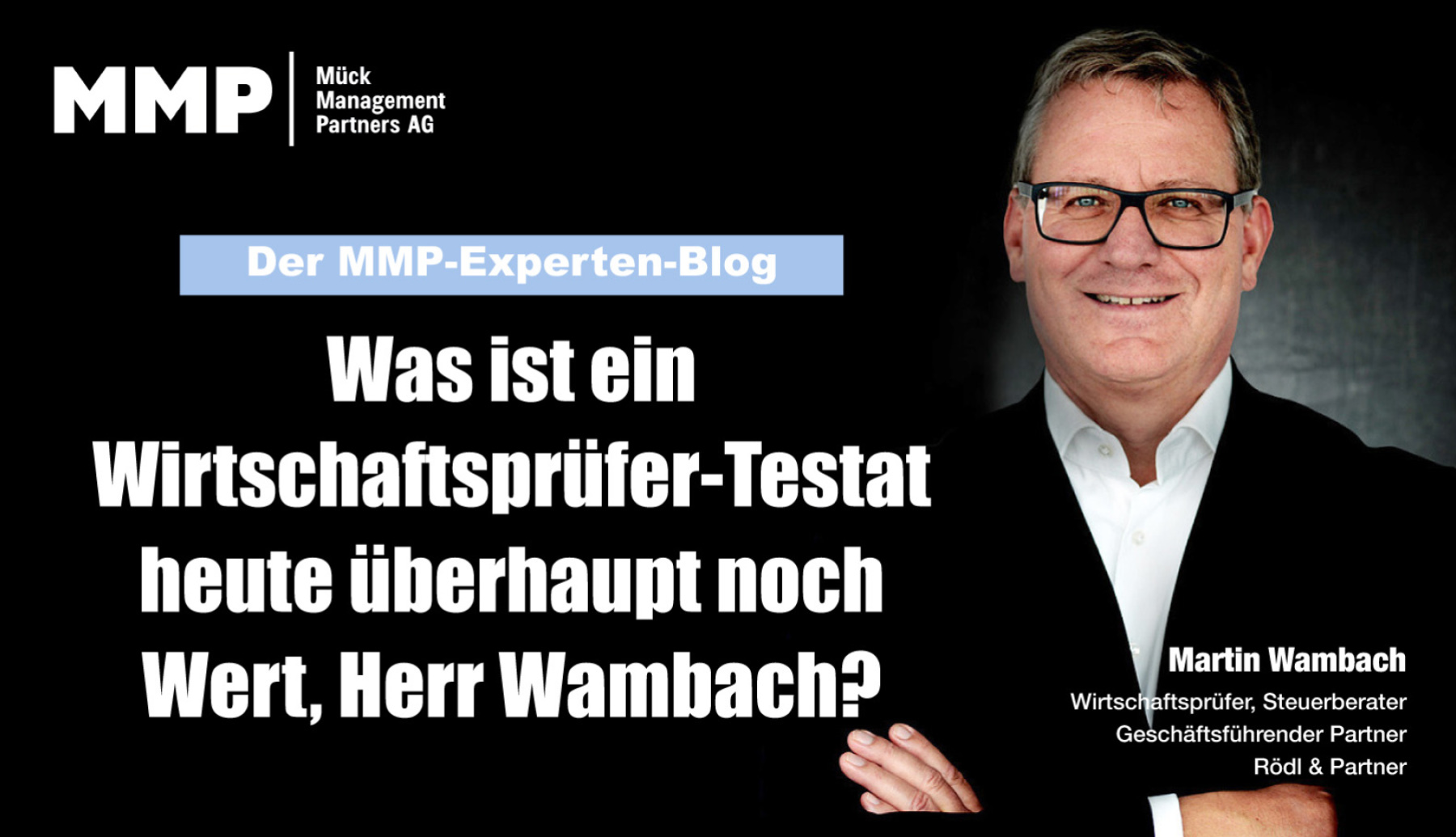What is the value of an auditor's certificate today?:
You can rely on the quality of the auditors!
25 January 2021

The Wirecard scandal has triggered a heated discussion about the supervision and control of companies, in which the work of auditors also plays an important role. The whole thing can be boiled down to the question of whether the audit certificate still has any value. There is a clear answer to this question. The audit certificate still has its value and the auditor's opinion can be relied upon. There are good reasons for this.
In Germany, about 25,000 audits of annual financial statements are carried out each year with demonstrably high quality. In very few individual cases is this quality called into question. These few cases are often accompanied by a high level of criminal energy on the part of individual persons involved or a widespread failure of control structures.
The work of auditors is based on the highest professional standards. These apply equally to the personal, technical and professional spheres. The standards are regularly developed and updated with the important stakeholders. A globally uniform auditing practice has developed through the standards. The application of these standards is binding and is regularly monitored by various bodies. Misconduct is sanctioned.
Auditors are one of the few professions that are subject to an extensive statutory obligation to undergo further training. The profession may not be exercised without proven successful completion of continuing education.
The scope, approach and reporting on the audit of annual financial statements have been intensively developed in recent years and are more closely aligned with the expectations of the addressees. The formerly very brief, formulaic audit opinion no longer exists. Instead, the auditor is required to report in detail on the procedure, content and focal points of the audit as well as on his opinion in a way that is specific to the company. Today, there are regularly supplements or notes in the auditor's report that contain valuable information for the assessment of the company and its development prospects.
The digitalization of companies and thus the use of ERP systems over the essential business processes of companies, allows us auditors a better, often complete audit of business transactions. The uncertainties of random sampling are significantly reduced. In addition, audit tools with machine learning and artificial intelligence are already being used today. This makes it easier to identify anomalies.
The work of auditors can be summed up in one word: Trust! Business needs trust; especially in turbulent times, trust is of elementary importance for a functioning economy. With the professional audit of annual financial statements, the auditor has been contributing to trust in financial reporting for a good 80 years and is an essential component of good corporate governance in practice. In the role of advisor or expert, the auditor creates trust on many other occasions in a dynamic economic environment. Examples include company valuations, accounting advisory, IPO readiness, transactions, post-merger integration, internal auditing, reorganisation and restructuring as well as corporate social responsibility.
The Wirecard scandal must be dealt with; this also applies to the role and quality of the associated audit in order to draw the right conclusions. It is not expedient to question the tried and tested system of auditing or the working methods and framework conditions for auditors on the basis of this dramatic individual case.
Cologne, January 2021
Martin Wambach
Managing Partner
Rödl & Partner